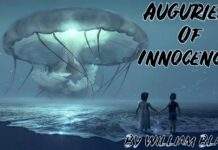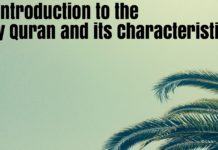Critical Appreciation “The Hawk In The Rain” By Ted

The Hawk in the Rain is one of Hughes’ most popular sonnets. The entire volume of sonnets, Hughes’ first distribution (which showed up in 1957), was designated “The Hawk in the Rain” after the title of this one sonnet. The topic of this sonnet is the difference between the unfaltering quality, the soundness, and the quality of a falcon (roosted on some bluff or ridge or rock or tree) and the precariousness and the feeling of risk of a person when it is pouring intensely and when a solid, cold breeze is likewise blowing.
The bird of prey stays unperturbed by the downpour and the solid breeze, and keeps up his balance. Yet, the man battles through the mud on tin ground, feeling apprehensive in case he should sink into it and into gulped by the earth. The falcon shows his solid success against the downpour and against the brutality of the breeze, while the man feels that his end is close. Notwithstanding, the last refrain communicates an alternate thought. The bird of prey would one day meet his end when, “coming the incorrect way,” he may be flung downwards by the rage of the tempest and killed. While the sonnet shows the falcon’s predominance over man as far as self discipline and the intensity of perseverance, it likewise shows that the bird of prey isn’t undying or insusceptible.
The sonnet contains realistic symbolism, similar to the heft of the sonnets in a similar volume, and like the vast majority of different sonnets which Hughes composed in this way. We are given a distinctive image of a man battling through mud and feeling that he may be gulped by the earth. We additionally have a striking image of the falcon roosted easily at a stature, keeping up an actually eye.
The last refrain presents the most clear image of the falcon being heaved somewhere near an incensed tempest, and running against the earth, to be executed immediately. The photos in this sonnet have been introduced to our psyches by methods for striking words set up in unique mixes. In fact, this sonnet shows Hughes’ skillful utilization of the language despite the fact that straightforwardness is relinquished all the while. The absolute most great lines, as respects the , utilization of language, are the accompanying:
While slamming wind slaughters these obstinate fences,
Thumbs my eyes, tosses my breath, handles my heart,
What’s more, downpour hacks my head deep down, the falcon hangs
The precious stone purpose of will that polestars
The ocean drowner’s perseverance:
The utilization of likeness and allegory in the sonnet adds to its advantage and furthermore serves to stress the specific thought being communicated. Instances of such an utilization of figures of discourse are: “consistent as a mind flight;” “piece in the world’s mouth”; “the heavy shires crash on him”; and “the skyline traps him.” We likewise have similar sounding word usage in the sonnet; and this additionally is a gadget which Hughes utilizes in his verse often and with extraordinary impact. The absolute first line and afterward the last line of the sonnet give instances of the utilization of similar sounding word usage:
- (1) I suffocate in the drumming ploughland, I haul up…
- (2) Smashed, blend his heart’s blood in with the soil of the land.


Here the “m” sound is rehashed, and furthermore the ” sound (in “blood” and “land”). The last verse creates an emotional impact on us due to the inversion of the possibility of the sonnet. This refrain comes as an amazement. All through the sonnet a differentiation is set up between the man and the bird of prey; and afterward like the man’s, if not more terrible than the man’s.
As indicated by one of the pundits, Alan Bold, Hughes accepts that the quality of creatures lies in their impulse and exact capacity. Hughes stated: “Creatures are not vicious, they are a great deal more totally controlled than men, quite a lot more adjusted to their current circumstance.” So, while Hughes is nearly gobbled up by mud, and is aced by this hearty component, the falcon “easily at tallness hands his actually eye.” While the savage breeze
Thumbs my eyes, tosses my breath, handles my heart,
What’s more, downpour hacks my head deep down, the falcon hangs
The jewel purpose of will that polestars
The ocean drowner’s perseverance.
This, says Alan Bold, is an extreme note in Nature Poetry. Past admirers of Nature have, similar to G. M. Hopkins, wondered about the assortment and excellence of creatures, or, similar to D. H. Lawrence, considered them to be like man. Hughes, notwithstanding, purposely puts man off guard as contrasted and creatures.
In this sonnet, man exists on a lower earth-bound level than the falcon. For Hughes, creatures are unadulterated encapsulated work; they, dislike man, vitiated by Spurious ethical quality or crippled by question. A falcon is a haw though a man has aspiration to be god-like and is along these lines for all time baffled. The falcon is always in his own component in any event, when he bites the dust an essential passing as he “meets the climate/Coming the incorrect way.”
Critical Appreciation of “Chaucer” By Ted Hughes


























